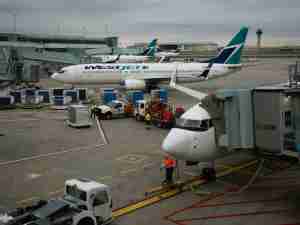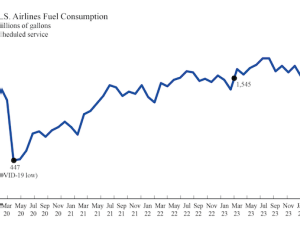The company, which like rival FedEx Corp is viewed as an economic bellwether because of the volume of goods it handles, said it expects international shipments of packages weighing up to 40 kg (88 pounds) to boost profit in the second quarter.
UPS gets about 20 percent of its business from international deliveries.
"The first quarter was particularly challenging for (international) ... but we feel that the business is prospering and global trade, especially within Europe and Asia, will continue to grow," Chief Financial Officer Kurt Kuehn told Reuters. "So that's probably the area that we'll see the most improvement year over year (in the second quarter)."
However, UPS said it expects shipments of heavier goods -- most of which form a part of the supply chain service it offers businesses -- to remain subdued through 2013.
UPS is coming off a particularly difficult year, when customers cut back on air courier services.
But as consumers shift from air express to cheaper but slower modes of shipping, UPS's stronger North American domestic ground network puts it in a better position than FedEx, which focuses more on international air shipments.
FedEx cut its full-year forecast last month after a lower-than-expected quarterly profit and said it would step-up restructuring efforts and cut capacity in Asia.
UPS said deliveries for online retailers played a big part in its better-than-expected quarterly profit.
"Increased focus by traditional retailers on using their brick-and-mortar locations as distribution sites is creating more pickups at retail locations for ultimate residential delivery," Kuehn said on a post-earnings conference call.
The company's daily package volume in the United States increased 4.4 percent in the first quarter, led by UPS Ground, which delivered 531,000 more packages per day.
"E-commerce has a greater-than-one-shipment-per-purchase benefit because (UPS) puts a few things in the same box, (and) sometimes things are returned using UPS as well," Morningstar Inc analyst Keith Schoonmaker said.
Jump on Fedex
The company also got a jump start of more than a year over its rival on a service to let customers select from a range of options to schedule dates, locations and times of delivery. FedEx only introduced the service on Tuesday.
UPS's international package revenue was flat in the quarter ended March 31, while sales in the United States rose 3.4 percent. Total revenue rose 2.2 percent to $13.43 billion.
Net income rose to $1.04 billion, or $1.08 per share, from $970 million, or $1 per share, a year earlier.
Excluding items, UPS earned $1.04 per share.
Analysts on average had expected earnings of $1.01 per share, excluding items, on revenue of $13.46 billion, according to Thomson Reuters I/B/E/S.
The company reaffirmed its full-year earnings forecast of $4.80-$5.06 per share.
Healthcare Push
UPS also said on Thursday it would buy Hungarian pharmaceutical logistics company, CEMELOG Zrt, to strengthen its healthcare reach in Europe. Terms were not disclosed.
"The emerging markets' business-to-consumer (offering) and industry specific solutions like healthcare have enormous potential and UPS continues to invest in them," Chief Executive Scott Davis said.
S&P Capital IQ analyst Jim Corridore, who raised his price target on UPS shares to $100 from $94, said he expected similar deals after UPS's unsuccessful plan to buy Dutch delivery firm TNT Express for about $7 billion.
UPS dropped plans to buy TNT in January after European regulators said they would veto the deal on antitrust concerns. (Reuters)









